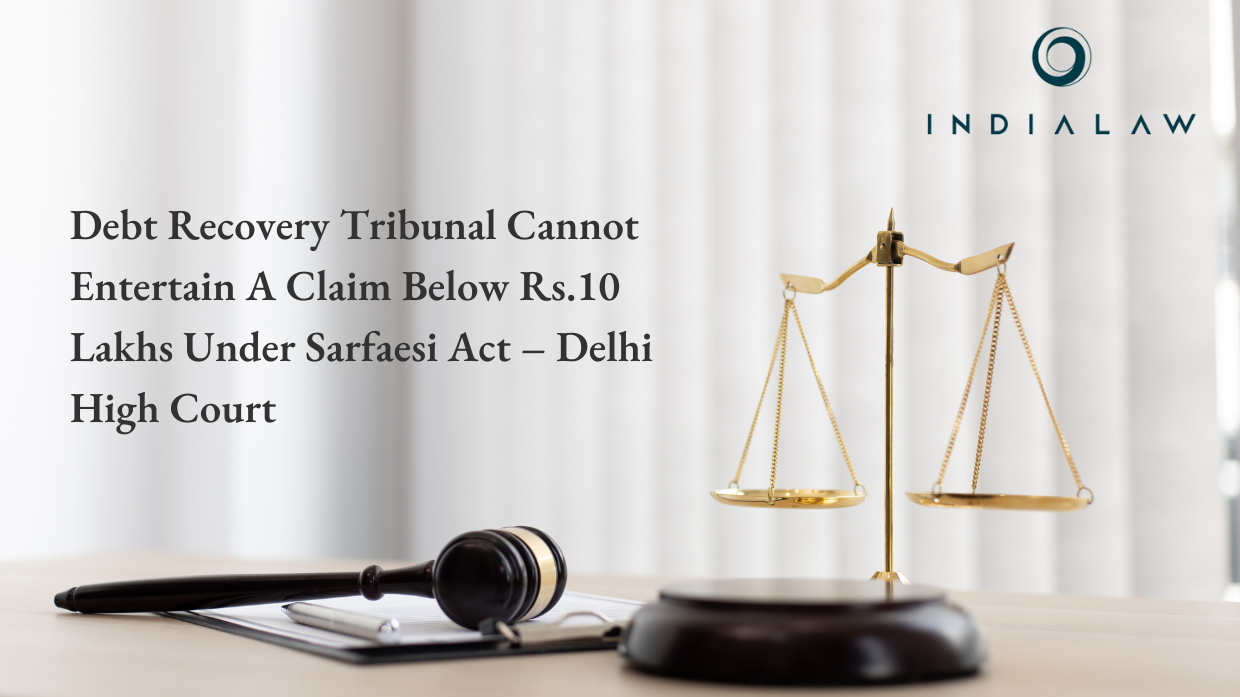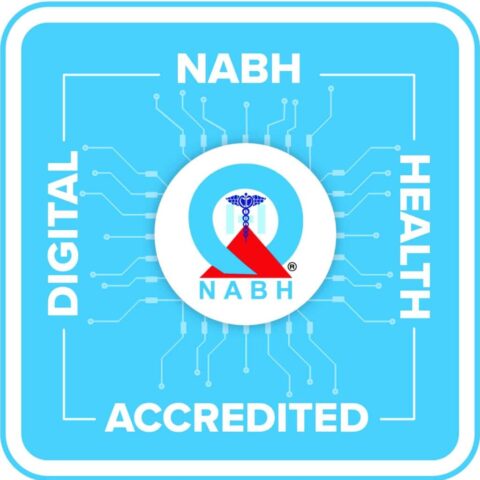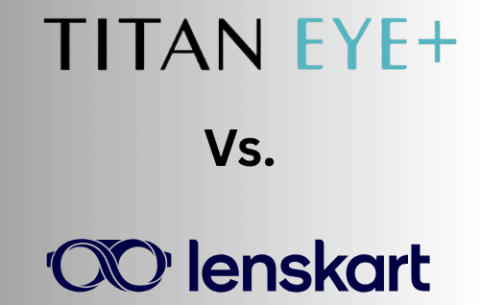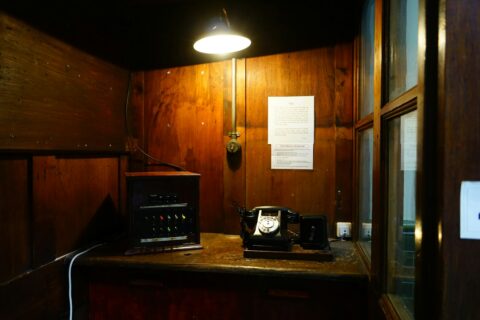Debt Recovery Tribunal Cannot Entertain A Claim Below Rs.10 Lakhs Under Sarfaesi Act – Delhi High Court

There is a remarkable legal development wherein the High Court of Delhi (HC) in its ruling brought major implications on the jurisdiction of Debt Recovery Tribunals (DRT) under the Securitization and Reconstruction of Financial Assets and Enforcement of Security Interest (SARFAESI) Act.
The Division Bench comprising Justice Vibhu Bakhru and Justice Amit Mahajan of the HC in IDFC First Bank Limited v. Union of India and Ors.[i]. held that the DRT cannot entertain a claim below Rs.10 lakhs under the SARFAESI Act. It added that remedy ú/s 13(10) under the SARFAESI Act cannot be availed by a bank independent of the provisions of the Recovery of Debts and Bankruptcy Act, 1993 (“RDB Act”).
The HC clarified that “An application under Section 13(10) of the SARFAESI Act is not an action for enforcement of a security interest in respect of a financial asset. The nature of the said application is precisely that of the original action, which is covered under the RDB Act. However, the SARFAESI Act does not contain any express provisions, that stipulates which Debts Recovery Tribunal has the jurisdiction to decide any original claim as to the outstanding amount that remains after the secured creditor has enforced the security interest.”
Facts of the case
In the instant case, the IDFC First Bank, challenged the rejection order of the DRT wherein it rejected the application filed by the bank u/s 13(10) of the SARFAESI Act due to lack of pecuniary jurisdiction. The outstanding amount in dispute was Rs. 6,92,551.63, with interest. The contentions of DRT were that the pecuniary jurisdiction limits under the RDB Act would not be applicable when the outstanding amount is below Rs. 20 lakhs.
The bank argued that Section 13(10) of the SARFAESI Act provides an independent remedy and the same has a distinct implication with that of the provisions of the RDB Act. Hence, the pecuniary limit set by Section 1(4) of the RDB Act would not be applicable to the application filed u/s 13(10) of the SARFAESI Act.
Observations of the HC
The HC did not concur with the arguments of the bank on the following grounds:
First that, the SARFAESI Act does not stipulate the DRT, which would have the jurisdiction to adjudicate the application under Section 13(10) of the SARFAESI Act.
Second, that if it is necessary to refer to the RDB Act for the purposes of ascertaining the DRT that would exercise jurisdiction in respect of an application made under Section 13(10) of the SARFAESI Act, there is no ground to disregard the limits of the pecuniary jurisdiction of DRT under the RDB Act, given the interconnection between the two Acts.
Third that, certain provisions of the RDB Act, that are significant for determining the claim adjudication and recovery of amount, cannot be overlooked, that includes the right to file an appeal in respect of determining the amount due under Section 13(10) of the SARFAESI Act, as the same has not been provided under the SARFAESI Act.
The HC pointed out the amendment made to the RDB Act by Section 294 of the IBC, that introduced the words “save as otherwise provided” in Section 1(4). The HC emphasized that “The import of the said words was to carve out an exception to the clause regarding the pecuniary jurisdiction of the Debts Recovery Tribunal. Thus, to the extent that the Debts Recovery Tribunal is expressly conferred jurisdiction, it would exercise the same notwithstanding, the pecuniary threshold specified under Sub-section (4) to Section 1 of the RDB Act.”
The HC referred to the Supreme Court’s decision in the case of State Bank of Patiala v. Mukesh Jain and Anr.[ii], wherein the Court held that Rs. 10 lakhs threshold u/s 1(4) of the RDB Act applied to limit the DRT’s original jurisdiction.
The court while dismissing the petition of the bank, concluded that the remedy under the SARFAESI Act cannot be considered independent of the RDB Act. And application filed u/s. 13(10) of the SARFAESI Act., for all intents and purposes is an Original Application u/s.19(1) of the RDB Act, that had a limit set at Rs. 20 lakhs.
[i] W.P.(C) 2550/2020
[ii] 2017 1 SCC. 53
By entering the email address you agree to our Privacy Policy.



